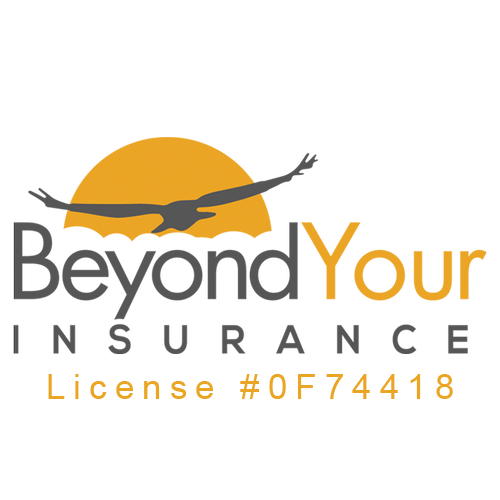
Business Insurance
Business insurance is a critical component of risk management for companies of all sizes and industries. Here are key benefits and necessities of business insurance:
1. **Financial Protection:** Business insurance shields a company's assets, finances, and operations from unforeseen events and liabilities. It covers losses and damages, reducing the financial impact on the business when accidents, disasters, or lawsuits occur.
2. **Legal Compliance:** Many forms of business insurance, such as workers' compensation and liability coverage, are required by law in most jurisdictions. Compliance with these mandates is essential to avoid fines, penalties, and potential legal action.
3. **Risk Mitigation:** Insurance helps businesses transfer and manage various risks, including property damage, theft, natural disasters, and liability claims. This risk mitigation allows companies to focus on growth and operations with greater peace of mind.
4. **Continuity of Operations:** In the face of unexpected events, like fires or natural disasters, business insurance can provide funds to repair or replace damaged property and equipment. This ensures business continuity and minimizes downtime.
5. **Protection for Employees:** Insurance policies such as workers' compensation and health insurance offer protection and benefits to employees, fostering a safe and healthy work environment and attracting and retaining talent.
6. **Liability Coverage:** Business liability insurance protects against lawsuits and claims, including those related to injuries, property damage, or product defects. It covers legal defense costs and potential settlements or judgments.
7. **Customer Trust:** Having insurance can enhance a business's credibility and trustworthiness in the eyes of clients and partners. It demonstrates a commitment to responsibility and the ability to address unforeseen challenges.
8. **Contract Requirement:** Some clients and partners may require proof of insurance before entering into contracts or agreements. Business insurance can help meet these contractual obligations and secure valuable partnerships.
9. **Customization:** Business insurance policies can be tailored to specific industry needs, providing coverage that aligns with a company's unique risks and challenges.
10. **Peace of Mind:** Ultimately, business insurance provides peace of mind for owners and stakeholders, knowing that the company is protected against a wide range of potential threats and liabilities.
In summary, business insurance is not only a necessity to meet legal requirements but also a strategic investment in the long-term sustainability and resilience of a company. It safeguards assets, finances, and reputation while allowing businesses to operate with confidence in an unpredictable world.
-
BOP stands for Business Owner's Policy, which is a type of insurance policy designed for small to medium-sized businesses. A BOP insurance policy typically combines several essential coverages into a single package, making it more convenient and cost-effective for business owners.
A typical BOP includes:
Property Insurance: This covers the physical assets of the business, such as buildings, equipment, inventory, and furniture, against perils like fire, theft, and vandalism.
General Liability Insurance: This provides coverage for bodily injury, property damage, and legal expenses if a third party (e.g., a customer or vendor) sues the business for injuries or damages they claim were caused by the business's negligence.
Business Interruption Insurance: This coverage helps replace lost income and covers certain ongoing expenses if the business is temporarily unable to operate due to a covered event (e.g., a fire or natural disaster).
BOP insurance is ideal for small businesses because it offers a cost-effective way to obtain essential coverage, and it can be customized with additional endorsements or riders to suit the specific needs of the business. It's a convenient solution that helps protect against common risks without the need to purchase multiple separate policies.
-
Electronic data loss insurance is a specialized policy that provides coverage for the financial losses and expenses incurred by businesses due to the accidental or malicious loss of electronic data. This type of insurance helps organizations recover and restore their digital assets, manage data breach expenses, and mitigate the financial impact of data-related incidents.
-
General Liability Insurance primarily covers claims related to third-party bodily injury, property damage, and personal injury (e.g., defamation, false advertising) that occur on your business premises or as a result of your business operations. It's often referred to as "slip and fall" insurance.
-
Office insurance is a type of commercial insurance designed to protect businesses and professionals who operate in office spaces. It typically covers risks such as property damage, theft, liability claims, and business interruption, providing financial security and continuity for office-based operations.
-
Non-owned auto insurance is a policy that provides liability coverage for individuals or businesses when their employees or members use vehicles not owned by the company for work-related purposes. It safeguards against potential liability claims arising from accidents while driving non-owned vehicles on company business.
-
Professional liability insurance, also known as Errors and Omissions (E&O) insurance, is designed to provide financial protection to professionals and businesses that provide services, advice, or expertise in various fields. It covers a range of situations where clients or third parties may allege that the professional's or business's actions, advice, or services led to financial losses or harm. Here's what professional liability insurance is typically used for:
-
General Liability Insurance addresses risks associated with physical harm, property damage, and personal injury claims arising from general business operations.
Here's what General Liability Insurance is typically used for:
Bodily Injury: General Liability Insurance covers medical expenses, legal costs, and potential settlements or judgments if someone is injured on your business premises or as a result of your business activities. This includes situations like slip and fall accidents, trips, or other physical injuries.
Property Damage: If your business accidentally damages someone else's property, such as a client's home or office, General Liability Insurance can cover the costs of repair or replacement.
Personal and Advertising Injury: This aspect of the insurance covers claims related to non-physical injuries, including defamation (slander or libel), copyright infringement, or false advertising. It helps protect your business against claims arising from your advertising content or statements.
Products Liability: If your business manufactures, distributes, or sells products, General Liability Insurance can cover claims related to injuries or damages caused by your products. This includes defective products, product design flaws, or inadequate product warnings.
Completed Operations: This aspect of coverage addresses claims that may arise after a project or service has been completed. For example, if a contractor's work leads to property damage or injury after a construction project is finished, General Liability Insurance can provide protection.
Legal Defense Costs: Even if a liability claim is groundless or fraudulent, defending your business in court can be expensive. General Liability Insurance covers the legal costs associated with defending your business against covered claims.
Contractual Obligations: Some contracts may require you to have General Liability Insurance to fulfill your contractual obligations, particularly when working with clients, vendors, or landlords.
Business Reputation: Having General Liability Insurance can also help protect your business's reputation and credibility, as it demonstrates your commitment to addressing potential liabilities and risks.
Here's what professional liability insurance is typically used for:
Professional Services: It covers claims related to errors, omissions, or negligence in the delivery of professional services. This includes professions like lawyers, doctors, architects, engineers, accountants, consultants, and IT professionals.
Financial Advice: Financial advisors, investment managers, and stockbrokers can use professional liability insurance to protect themselves from claims related to poor investment advice, mismanagement of funds, or financial losses suffered by clients.
Legal Services: Lawyers and law firms use professional liability insurance to protect against claims of legal malpractice, such as errors in legal documentation, failure to meet deadlines, or providing incorrect legal advice.
Medical Services: Healthcare professionals, including doctors and nurses, rely on this insurance to cover claims of medical malpractice, such as surgical errors, misdiagnoses, or medication mistakes.
Consulting: Management consultants, business advisors, and other consultants use professional liability insurance to protect themselves from claims of providing incorrect or harmful advice that leads to financial losses for their clients.
Technology and IT Services: IT professionals and technology companies use this insurance to cover claims related to data breaches, software errors, or system failures that result in financial losses or data loss for their clients.
Design and Construction: Architects and engineers use professional liability insurance to protect against claims of design errors or construction defects that may lead to project delays or increased costs.
Media and Creative Services: Professionals in the media and creative industries, such as advertising agencies, graphic designers, and writers, can use it to cover claims of copyright infringement, plagiarism, or errors in advertising content.
Real Estate: Real estate agents and brokers may use professional liability insurance to protect against claims of misrepresentation, failure to disclose information, or errors in property transactions.



